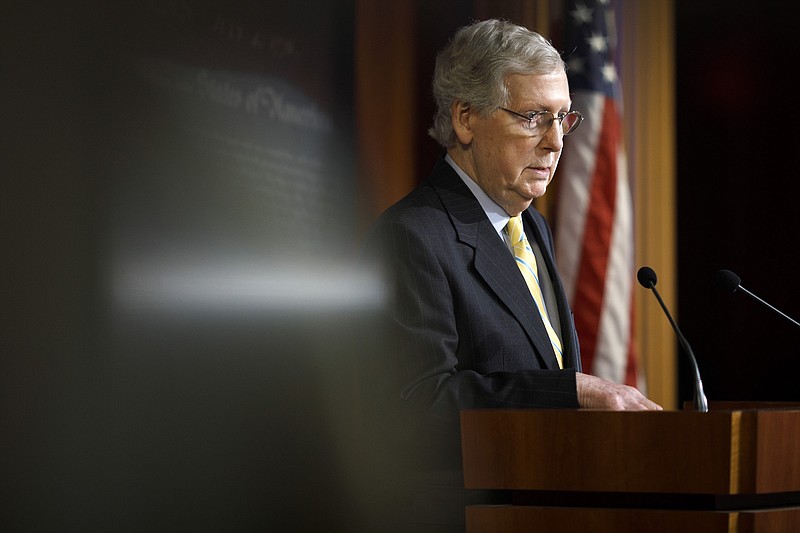Round 1 of the Democratic presidential primary debates is history, leaving the public with much to chew over. So many candidates. So many promises. So many governing visions for where to take the nation.
Here's the stark reality: Regardless of who captures the Democratic nomination, and possibly the White House, next year, his or her grand plans will be for naught unless there is a shift in the U.S. Senate.
There will always be squabbling, showboating and foot-dragging in the upper chamber. That is how the Founding Fathers wanted it. The majority leader, Mitch McConnell, however, has devoted much of his career to perfecting the art of obstructionism, weaponizing Senate gridlock like no one before him. He calls himself the "Grim Reaper," having turned his chamber into a legislative graveyard.
When it comes to putting the interests of himself and his Republican Party over that of the public, he has no scruples. Just ask Merrick Garland.
A telling moment from last Wednesday's Democratic debate was when the candidates were asked how, as president, they would prevent McConnell from jamming up their Supreme Court nominations like he had Garland's. None had a good answer.
To be fair, there is no good answer. Restoring sanity to the Senate requires removing McConnell from power, either by unseating him or by stripping him of his majority.
To control the Senate, Democrats need a net gain of four seats. Already, the fever to dislodge President Donald Trump has complicated this effort as the party has struggled to recruit marquee challengers in possibly competitive states. Minority Leader Chuck Schumer was hoping to woo Beto O'Rourke to run in Texas against Sen. John Cornyn. He also made early pitches for Gov. Steve Bullock to run in Montana and former Gov. John Hickenlooper in Colorado. To no avail. The lure of the Senate this cycle cannot compete with the chance, no matter how minuscule, of winning the presidency - or, barring that, the vice-presidential slot or a choice Cabinet post.
Beyond the presidential field, other potential recruits ran a cost-benefit analysis and decided a Senate race wasn't worth it. Among the more painful failures was Georgia, where party leaders had labored to persuade Stacey Abrams, who narrowly lost her race for governor under sketchy circumstances last fall, to take on Sen. David Perdue.
In Kentucky, a challenger to McConnell has yet to emerge. Party leaders and activists have been pushing hard for Amy McGrath, the former fighter pilot who lost a tough race for Congress last year. In March, the grassroots-funded group Ditch Mitch announced its campaign to draft McGrath.
This is not to say that Democrats haven't scored some wins, including signing up Mark Kelly, the retired astronaut and the husband of former Rep. Gabby Giffords, to run in Arizona.
Determined to keep a spotlight on the Senate, Democrats are aiming to elevate McConnell's profile. Senate candidates are featuring him in their launch videos. The Democratic Senatorial Campaign Committee is going after him hard on social media, and other McConnell-focused projects are in the works.
The Republican leader has expressed delight at all the attention. "I was thrilled to dominate the discussion last night," he told reporters after the Wednesday night debate.
This was a bit of overstatement, but anyone interested in a remotely functional government would do well to work for change in the Senate. Trump may pose a particularly vivid threat to American democracy, but a Senate commanded by McConnell presents a potentially more enduring, if far more conventional, one.
The New York Times
